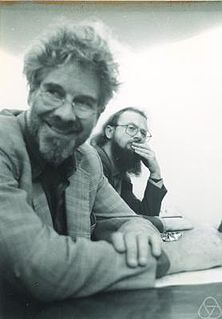A Quote by Vannevar Bush
If scientific reasoning were limited to the logical processes of arithmetic, we should not get very far in our understanding of the physical world
Related Quotes
The true scientific understanding of the nature of existence is so utterly fascinating; how could you not want people to share it? Carl Sagan, I think, said 'when you're in love, you want to tell the world.' And who, on understanding a scientific view of reality, would not, as it were, fall in love and want to tell the world.
I wouldn't say the anthropologists were making art, but they were definitely justifying their practices with very personal reasoning, passion, and they were also experimenting with form. There was a sense of trying to be as sincere as possible, whether you were investigating something far away from you or very close.
Humans aren't as good as we should be in our capacity to empathize with feelings and thoughts of others, be they humans or other animals on Earth. So maybe part of our formal education should be training in empathy. Imagine how different the world would be if, in fact, that were 'reading, writing, arithmetic, empathy.'
Mathematics is not arithmetic. Though mathematics may have arisen from the practices of counting and measuring it really deals with logical reasoning in which theorems-general and specific statements-can be deduced from the starting assumptions. It is, perhaps, the purest and most rigorous of intellectual activities, and is often thought of as queen of the sciences.
It is, indeed, right that we should look for, and hasten, so far as in us lies, the coming of the day of God; but not that we should check any human effort by anticipations of its approach. We shall hasten it best by endeavoring to work out the tasks that are appointed for us here; and, therefore, reasoning as if the world were to continue under its existing dispensation, and the powers which have just been granted to us were to be continued through myriads of future ages.

































